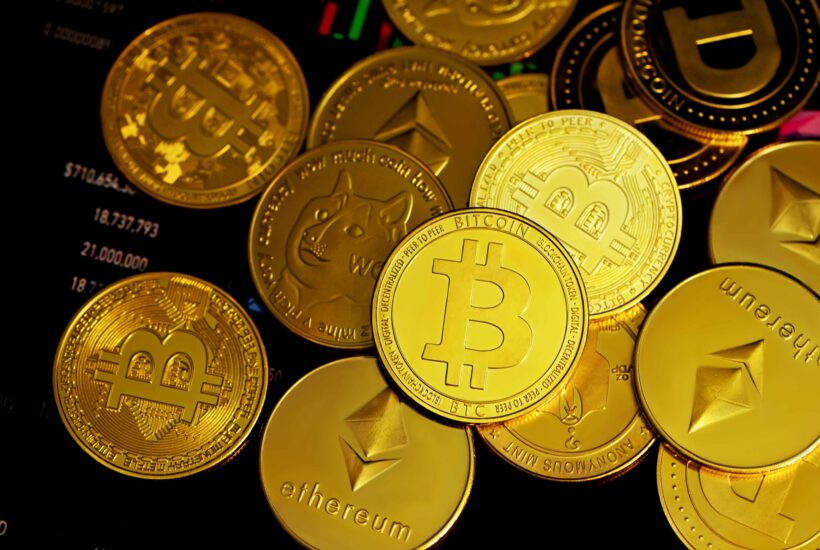Crypto
What Impact Could Elections in France Have on the Crypto Industry
Overall, the guidelines in France are not too strict and do not discourage investment in cryptocurrencies. The central bank has also experimented extensively with central bank digital currencies (CBDCs). However, in an apparent contradiction to one of the main features of cryptocurrencies, the central bank governor hinted that the government should have control over crypto assets.

In the first round of the French elections, a close race between incumbent Emmanuel Macron and contender Marine Le Pen loomed. International crises such as the Ukraine war and France’s debacle in North Africa, as well as domestic issues such as rising inflation, immigration, and the high cost of essential goods, have made for a hectic election campaign.
The debate over the country’s technological progress, including cryptocurrencies, has taken a back seat. That is despite a survey by IPOS showing that 8% of the French population owns cryptocurrencies and another 30% plan to invest in this emerging asset class – suggesting that candidates may be overlooking an important demographic.
Young adults under the age of 35 are particularly interested in investing in virtual currencies – a notable point, given that the battle in the upcoming elections is focused on voters between the ages of 18 and 35.
The survey also suggests that cryptocurrencies could influence the outcome of the elections. About one in five respondents (18%) believe that the crypto issue can influence the elections.
Read more on the subject and find the most important financial news from around the world with our companion app Born2Invest.
Crypto politics: Macron vs. Le Pen
In 2019, President Macron called for using data technologies like blockchain to increase agricultural productivity in the European Union. Since then, not much has happened.
Under Macron’s tenure, the fifth Anti-Money Laundering Directive (AMLD5) was adopted. The directive aims to regulate the trade, transfer, and possession of digital assets. It also stipulates that crypto service providers must first be licensed before they can operate in the country.
Overall, the guidelines are not too strict and do not discourage investment in cryptocurrencies. The central bank has also experimented extensively with central bank digital currencies (CBDCs). However, in an apparent contradiction to one of the main features of cryptocurrencies, the central bank governor hinted that the government should have control over crypto assets.
The CEO of the largest cryptocurrency trading platform Binance, Changpeng Zhao, believes that France is a crypto-friendly country. Speaking at a conference in Paris, he said Macron has a positive attitude toward the emerging crypto sector.
Le Pen, the leading right-wing conservative candidate, on the other hand, has yet to make her stance on cryptocurrencies very clear. So far in her campaign, she has focused on inflation, cost of living, immigration, and security, describing her goals as making France once again a country that looks inward first. As it stands, digital assets and their underlying technology do not appear to be a priority for the head of government and her party.
What other leaders are saying about cryptocurrencies
Governments around the world remain mixed on blockchain and cryptocurrency policies. On the one hand, cryptocurrencies threaten legacy financial standards; on the other, blockchains represent an opportunity to streamline many industries.
For example, the Latin American country of El Salvador recognized Bitcoin as legal tender last year. In contrast, the world’s second-largest economy China has banned all crypto transactions within its borders and is working on developing its own digital currency.
World leaders have differing opinions on cryptocurrencies. In an interview with a major news network, former US President Donald Trump called Bitcoin and other cryptocurrencies a “scam” designed to hurt the US dollar.
Current U.S. President Joe Biden, on the other hand, seems to understand the potential of cryptocurrencies. His recent executive order on cryptocurrencies shows a positive attitude towards digital assets.
Boris Johnson and his government seem to be sending mixed signals in the UK. In a recent speech, Boris stated that the government is open to the crypto industry. However, the head of the Treasury, Rishi Sunak, is taking a tough stance against crypto companies.
In Australia, the Prime Minister is a firm believer in cryptocurrencies. He believes that it will have a significant impact on payment systems and financial standards.
__
(Featured image by Kanchanara via Unsplash)
DISCLAIMER: This article was written by a third party contributor and does not reflect the opinion of Born2Invest, its management, staff or its associates. Please review our disclaimer for more information.
This article may include forward-looking statements. These forward-looking statements generally are identified by the words “believe,” “project,” “estimate,” “become,” “plan,” “will,” and similar expressions. These forward-looking statements involve known and unknown risks as well as uncertainties, including those discussed in the following cautionary statements and elsewhere in this article and on this site. Although the Company may believe that its expectations are based on reasonable assumptions, the actual results that the Company may achieve may differ materially from any forward-looking statements, which reflect the opinions of the management of the Company only as of the date hereof. Additionally, please make sure to read these important disclosures.
First published in CRYPTO MONDAY, a third-party contributor translated and adapted the article from the original. In case of discrepancy, the original will prevail.
Although we made reasonable efforts to provide accurate translations, some parts may be incorrect. Born2Invest assumes no responsibility for errors, omissions or ambiguities in the translations provided on this website. Any person or entity relying on translated content does so at their own risk. Born2Invest is not responsible for losses caused by such reliance on the accuracy or reliability of translated information. If you wish to report an error or inaccuracy in the translation, we encourage you to contact us.

-

 Business1 week ago
Business1 week agoTopRanked.io Weekly Affiliate Digest: What’s Hot in Affiliate Marketing [Best Technology Affiliate Programs]
-

 Business3 days ago
Business3 days ago2.5 Billion People Watch Quiz Shows Every Day. Masters of Trivia (MOT) Is Letting Them Compete
-

 Crypto2 weeks ago
Crypto2 weeks agoBitcoin Steady Near $68K as ETF Outflows and Institutional Moves Shape Crypto Markets
-

 Business6 days ago
Business6 days agoDow Jones Stalls Near Record Highs as Inflation-Fueled Rally Awaits Next Move
























